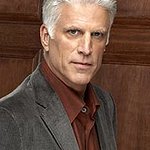By Tim Saunders on
Actor Ted Danson has written an article for CNN to raise awareness of the first UN-recognized World Oceans Day, held on Monday, June 8.
Co-founder of Oceana – an organization that campaigns to protect and restore the world’s oceans – Danson is a well-known advocate for ocean protection.
“I became an ocean activist in 1987,” wrote Danson. "It was the fifth year of “Cheers” and my family moved into a neighborhood that was on the water, in Santa Monica, California. One day I took my daughters to the beach to go swimming, but it was “closed” and I couldn’t answer my daughter’s question why."
Danson goes on to write about how he set up the American Oceans Campaign – which became Oceana in 2002 – and about the new film he narrates, The End of the Line, which explores overfishing and its effects on the oceans.
“The U.N. reports that 75 percent of seafood species are maxed out or overexploited and catches of nearly a third of these species are less than 10 percent of what they once were. Ninety percent of the big fish — sharks, tuna, swordfish — are already gone, according to a 2003 study in Nature.
“The chemistry of the oceans is changing as they absorb 11 billion metric tons of carbon dioxide a year, and scientists say the acidifying waters will make it impossible for coral reefs, the nurseries of the sea, to grow. At the current rate of acidification, corals, sea snails and other calcium-carbonate-requiring life forms could begin to dissolve by the middle of the century, with potentially catastrophic results. Shellfish and fish will be in deep trouble as well.
“By protecting important habitats like corals from destructive fishing techniques, and setting science-based quotas on seafood species, the battle is halfway won. Fish species will recover, and the marine mammals, sea turtles and seabirds that rely on them for sustenance have a fighting chance.
“In addition, we must commit to renewable energy sources to end the excessive carbon dioxide emissions that are acidifying the oceans and making them inhospitable to life. The ocean does represent a source of energy, and it’s not offshore oil and gas drilling — it’s offshore wind. Europe is a leader in developing offshore wind power, and it’s time for the United States to catch up.”
To read the entire article, click here.
Copyright © 2009 Look to the Stars






